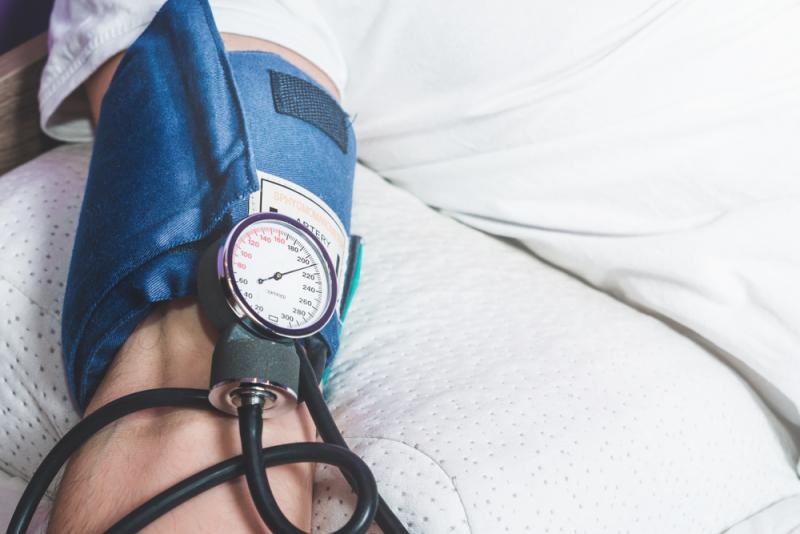
Travelling with any illness can be a bit daunting, especially if you have a heart condition. But don’t let that slow you down!
We’ve got a guide to help you understand what type of travel insurance will cover your heart condition, and how to travel safely.
Is it safe to travel with a heart condition?
It’s exciting going on holiday, but you should make sure you’re safe to travel with a heart condition. For most people, it’s safe to go abroad with a heart condition – even if you have a fitted heart device, like a pacemaker.
First, speak to a medical professional to make sure it’s safe for you to travel.
If you’ve recently had a heart attack or a major heart operation, you might need a letter from them to prove you’re fit to fly or go abroad.
Can I get travel insurance with a heart condition?
Each travel insurance provider will have their own rules around what medical conditions they cover.
Travel insurance looks at lots of different things, like your age, destination and pre-existing conditions. We’ll talk about these a little later.
The MoneyHelper directory is a good place to start if you’re looking for a specialist insurer to cover your heart condition.
What should travel insurance with a heart condition cover?
You deserve to feel like your travel insurance is there to protect you if you get ill abroad.
Make sure your travel insurance covers:
- emergency medical costs
- getting you back to the UK if it’s medically needed
- any lost, stolen or damaged medication
- cancelling or cutting your trip short because of your heart condition
Is a heart issue a pre-existing medical condition?
Yes. Most insurers consider heart-related health issues (like angina and arrhythmia) as pre-existing medical conditions.
To us, a pre-existing medical condition is an illness or injury that:
- a medical professional has identified
- is under investigation by a medical professional
- existed before your policy starts or when you book a trip – whichever is later
It’s really important to tell your insurer about your heart condition when buying your policy.
If you don’t, you might not be able to make a claim if you get ill while you’re abroad. This can even happen if you try to claim for something that’s not related to your heart condition.
Can I use my GHIC or EHIC for my heart condition?
Yes. Your Global Health Insurance Card (GHIC) or European Health Insurance Card (EHIC) can help you get cheaper or even free urgent medical care abroad.
Not all countries accept health cards, so it’s worth checking if you can use it before you go away. You can do this on the NHS webpage.
Don’t forget that the GHIC and EHIC aren’t the same as travel insurance. It won’t cover you for any other costs, like cancelling your trip or bringing you back home.
Essentials for travelling with a heart condition
Along with your holiday outfits, you should bring:
- A valid GHIC or EHIC so you can get lower-cost or free medical care if you’re travelling to Europe. Read our guide on using the GHIC or EHIC in Europe.
- Enough medication to last your trip and a few more days more to be safe.
- A medical device ID Card to let a medical professional know you have a heart device fitted, like a pacemaker (if you have one)
- Any recent medical letters that show what treatment you’ve had, and a copy of your electrocardiogram (ECG).
Flying with a heart condition
Before you take to the sky, make sure you’ve considered a few things.
Chat to a medical professional
It’s really important to talk to a medical professional before you fly with your heart condition. They can give you tips and advice on how to look after yourself while you’re away.
Talk to security and your airline
If like us, you’re always stopped in the security line (we’re sure it happens to us every time we fly!), let the airport staff know you have a heart device. They’ll need to be careful if they use a handheld metal detector.
You could also get in touch with the airport before you fly to let them know.
Check your medication
Make sure you pack enough medication in your carry-on for your journey, and the rest in your hold luggage.
Check whether your holiday destination has any rules around what medication you can take. Some countries don’t let you bring certain medications with you.
Our guide to travelling with medication can help you understand the rules too.
Research your destination
If you’re going somewhere with really hot or cold weather, just be mindful – extreme weather can put a strain on your heart, especially if you have a heart condition.
Try to visit places with a comfortable climate. High altitude spots can also increase your risk of a heart attack.
Check with a medical professional before travelling to anywhere 2,000 metres above sea level to see if it’s safe to go.
If you’re worried about an emergency heart issue, check to see how far you are from the nearest hospital.
Don’t push yourself too much
More extreme sports like diving and skiing can put a strain on your body and heart.
You’ll need the go-ahead from a medical professional to take part, but you should speak to your insurer too. We might not cover you if you take part in any activities that put you at risk.
If you’re insured with us, you’ll need to add extra cover to your policy if you’re planning to do any winter or adventurous sports.
Head to our winter sports or adventurous sports pages to learn more.
Look after yourself
While extreme sports might be off the cards, it shouldn’t stop you from staying active on your trip. This can be as simple as going for casual walks through the day.
Be mindful of what you eat and drink while you’re away. Too much salt, fatty foods and alcohol aren’t great for your heart – so try to enjoy everything in moderation.
Have a look at our guide on travelling with high cholesterol.
What to do if you get ill abroad
If it’s urgent, call the emergency services or go to the nearest hospital.
You should call us if you’re going into hospital or your medical costs are likely to be over £500, so we can help you.
Call your insurer’s emergency service or helpline as soon as possible. If you’re with us, our 24-hour emergency helpline is +44 (0) 292 010 7777.
MoneyHelper Directory
If we can’t cover your heart condition, you can use the MoneyHelper directory to find a specialist insurer who might be able to cover you if you’ve been:
- refused travel insurance or had your policy cancelled
- offered cover with a medical exclusion that you can’t remove from your policy
- quoted a price for a travel insurance policy with high medical costs
MoneyHelper makes it easier to find and compare policies you can afford that cover your condition and medical needs.
Access the MoneyHelper directory online or call MoneyHelper on 0800 138 7777 (phone lines are open Monday to Friday, 8:00am to 6:00pm, excluding bank holidays).


